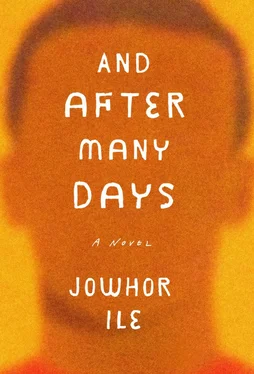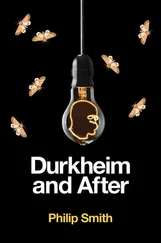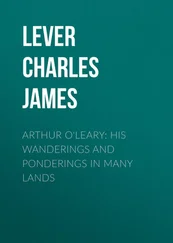Paul returned to school one week before Ajie and Bibi. He needed to settle in before his paper, which was due the first week. By early June he had written all nine papers but spent an extra week in school because it was hard for him to say goodbye to his friends and everything he had known for the last six years of his life. He had told Bendic not to send Marcus with the car to fetch him, that he would board a bus and come home on his own, maybe in the company of some of his friends.
He was wearing a pair of blue jeans and a lumberjack shirt with the sleeves rolled up to the elbows when he returned, with a traveling bag slung over his shoulder. He was almost taller than Bendic. Ma said he looked like a university student already, and Bendic agreed.
By August, when Bibi and Ajie were making preparations to return to school for a new session, Paul had bought and completed his JAMB forms, and when Ajie asked him what universities he had picked, he simply replied, “UP and UI.” Bendic wanted Paul to go to Ibadan, where he himself had gone. Ma thought staying at a university in Port Harcourt was a better idea, but they worried about the strikes by lecturers. Most universities across the country closed down so often, it was normal for students to spend two to three extra years to complete their courses.
That August, they talked about the student riots, the lack of funding for universities, and how lecturers had to go on strike when their salaries didn’t come. They moaned about “this government’s complete disregard for education.” It was as if the head of state were doing these things to thwart them in particular — he was in direct opposition to Bendic and Ma’s happiness. This criminal in an army uniform and sunglasses, he was a complete maniac. He was destroying this country and its future; the only place he deserved to be was in a high-security jail. If you called at 11 Yakubu that August, you would have thought Bendic and Ma were speaking of a very personal enemy.
They talked in low tones sometimes about sending Paul somewhere abroad to study. “At least we can be sure of the quality of education he is getting.”
“But where is the money, eh?”
Ma said Paul was too young to be sent abroad, she wanted him close by. Bendic said he still had friends in England who could act as guardian should the need arise.
Mr. Ifenwa came before dinner that Sunday. He did not come in with his usual dramatic flourish, hailing Bendic’s college nicknames, his voice booming from the driveway. He did not come flinging jovial insults and accusations with a newspaper in his hand and an unfinished argument from the last time, wagging a finger at Bendic and saying, “This boy, this boy.” He came in under a pile of papers held together in files bound with jute ropes, his face tired, his weak eyes gathering bags beneath them.
“I need to finish marking these papers. I haven’t had electricity in over a week, and I’m so busy in the day,” he moaned at Ma as soon as he walked into the parlor. He sat down and pushed the files onto the table. When Bendic walked into the parlor, Mr. Ifenwa looked up at him. “At least here is something you can contribute to the common good. I’m hoping if NEPA cuts the power while I’m here, you will turn on your generator so I can finish the work. Let us benefit a little bit from your bourgeois largesse.”
“Oh, Ifenwa, be quiet and let me hear something.” Bendic laughed and sat down.
“Nne, thank you,” Ifenwa said to Ma as the drinks arrived. “I didn’t mean you.”
“I know.” Ma laughed. “Once you put me in that talk, I’ll start keeping my cold beer to myself.”
He was marking an English exam, and Ma suggested they split the papers between them. They were multiple-choice questions and they could be done in an hour, Ma said. Ifenwa said, “You are a godsend, my sister.” He slid some of the papers her way with a copy of the answers.
The telephone rang for Bendic, and he took it in his study and came back a few minutes after. Paul turned up the TV volume and flipped back and forth between the two channels, hoping something interesting would begin on one. Channel 22 was showing a sitcom set in a chaotic house where Chief, his four wives, servants, and innumerable children lived, the sort of house you were never really sure how many people actually slept and ate there. Chief’s wives took turns fighting him, and once, when he’d annoyed everyone, all his wives and children came together to beat him up. He looked ridiculous, threatening them afterward, pointing and huffing. Ajie thought the program stupid and not funny at all.
“The roadblocks are worse today,” Mr. Ifenwa said, placing a marked script on the increasing pile to his left. He and Bendic began to talk wistfully about the kind of student protest they had in their day, their student union governments, and what they were able to accomplish. “What would you do”—Mr. Ifenwa turned his gaze on Ajie—“if you were the president of this country?”
Ajie laughed.
“Yes, tell me,” Mr. Ifenwa said, his eyes still on him. Then he looked at Bibi and at Paul in a way that made it obvious the question would be coming to them, too. Ajie didn’t know what to say first. He wanted constant power supply, but saying that would make him sound self-serving. Okay, he would give jobs to the jobless; he would try to make poor people not poor, and to pay lecturers so they wouldn’t go on strikes anymore. He definitely wouldn’t send a letter bomb to kill any journalist who wrote things about him he didn’t like. He would not make people disappear, as the current head of state was known to do. But he didn’t say any of these to Mr. Ifenwa.
“I’d make sure the roads were well maintained so they didn’t cause accidents,” Ajie blurted, and regretted the words immediately because he’d just remembered that Mr. Ifenwa’s wife had died in a car accident.
The parlor went quiet. Ma’s hand floated midair with the paper she was about to put aside; Mr. Ifenwa blinked behind his oval lenses, and Bendic cleared his throat, and the air in the parlor lurched back into gear.
“I’d send the military back to the barracks and return the country to democratic rule,” Bibi said.
Bendic hummed as if unsatisfied with the answer. Ma circled a number for Mr. Ifenwa’s attention and then passed the paper to him. “I would sack all the ministers and military administrators. They are all corrupt,” Paul said.
“Just that?” Bendic asked.
“And throw them in jail.”
“Without a fair trial first?” Bendic asked. “Sounds authoritarian.”
“Sounds like the kind of revolution we need, if you ask me,” Mr. Ifenwa said without looking up from his work. “How much evidence do we need that our leaders are corrupt?”
“I mean,” Bendic continued, “the problem is obviously systemic, and resolving it will require more than the actions of one good man or removing people from positions. It’s about developing processes, checks and balances, and organizing ourselves in a good way.”
Mr. Ifenwa’s nostrils flared and he gave out a sigh of frustration. “It makes me a little crazy when you keep saying systems . You have that maniac in power, murdering ordinary citizens, people are disappearing every day. Someone should first make him disappear, and then we can talk of moving this country forward!”
Bibi was bristling on her seat; Bendic and Mr. Ifenwa had hijacked the conversation instead of letting her expound on how she would make Nigeria better, so she began to flip the channels but kept the volume low. Ma asked Paul to bring her handbag from her bedroom.
When Paul came back to the parlor, Ma had brought up the case of the mysterious disappearance of a journalist who was a colleague’s relative, and Bendic said that perhaps it was high time everyone took to the streets, or else they ran the risk of being plucked off in isolation one by one.
Читать дальше












